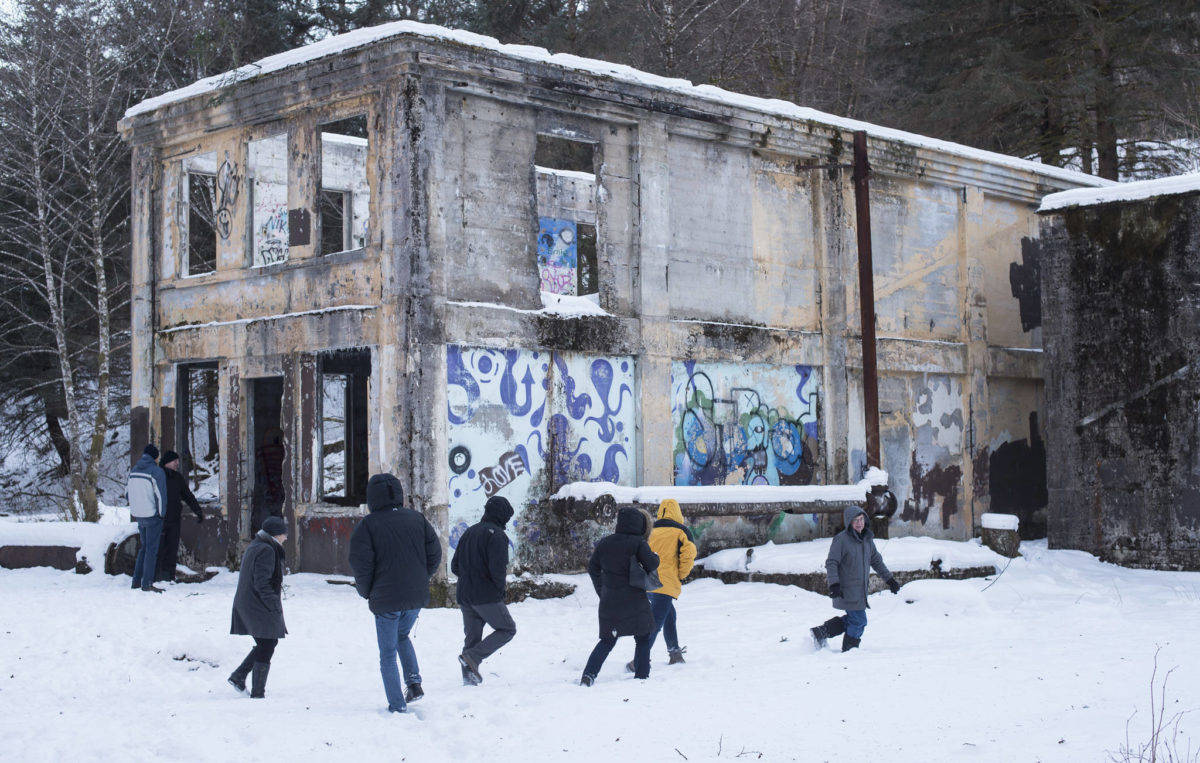Most people with a passing knowledge of local history know that the Treadwell Mine on Douglas Island played a pivotal role in the establishment of the Juneau-Douglas community. It was also Alaska’s first development project.
At its peak, Treadwell was the site of the largest hard rock gold mining operation in existence. Over its 40-year lifetime it produced 3.1 million ounces of gold and was home to some 2,000 people — both single and married miners and their families.
The Treadwell Historic Preservation and Restoration Society, Inc. was established in 2008 to stabilize and preserve Treadwell’s remaining structures and foundations. That same year, the City and Borough of Juneau Assembly formally named the site the Treadwell Mine Historic Park.
The popular Park serves a local clientele of recreational walkers, runners, dog walkers and wintertime cross-country skiers. Independent travelers and history buffs visit the historic site. The Park trails are also used for high school and middle school cross-country races, and bike races.
One of the society’s original incorporators was local mining historian David Stone. David always wanted to unlock the potential of the historic site so the stories of the past would continue to be told. He helped create the Society’s first seven (of 17) interpretive signs in the Park, and just prior to his untimely death in November 2012, and in the last few months of his nine years on the CBJ Assembly, secured $150,000 from the 1 percent sales tax for Treadwell.
In 1915, there were about 200 structures in Treadwell. Only three, built of concrete with metal roofs, survived the devastating Douglas fire of 1926. (Douglas burned three times — in 1911, 1926 and 1937.)
Taku winds regularly roar through Treadwell. As happens at many historic sites afflicted by adverse weather, overgrown vegetation and vandalism, safety concerns became an issue. Over the years, pieces of rusted metal roofing had torn free from the failing structures, posing a safety risk to park users.
In 2013, we determined we could no longer ignore the danger of deteriorating metal roofs in an area of high winds so we began raising funds to re-roof and stabilize the three structures. We were were awarded a $125,000 Rasmuson grant, which combined with the $150,000, has funded about half of the Society’s efforts. Fundraising has filled in the gaps.
Our first historic preservation project was the iconic and picturesque Pump House on Sandy Beach in Gastineau Channel. Our second signature effort — the Office Building — is currently underway, as is a third smaller project to preserve the Transformer House.
The Treadwell Mine’s original office and vaults were located inside the company store in the heart of the historic townsite. In 1914, a “new” 72-by-24 office building was constructed adjacent to the store. It housed mine management offices and a drafting room for 25 employees — engineers, accountants, clerks and bookkeepers.
To facilitate the office preservation, the perimeter of the building was cleared to allow sunlight in and provide sightlines to where the assay office, general store, school, bunkhouses and dining hall once stood in the shadow of the office.
The roof was replaced, the second floor removed, and the building soon will be painted. The structure is being re-purposed as an open-air picnic shelter for public use. The Treadwell story will be told on weatherproof interpretive panels installed on the expansive inside wall.
Rather than choose the path of “demolish by neglect,” the society opted for “wise reuse.” Our goal has been to ensure the park’s safety and give it an expanded educational purpose in keeping with the historic area and recreational needs of the community. After preservation efforts are complete, minimal maintenance will be required.
We look to the community, especially the regulars who use the Park to assist us in stewardship efforts — to promote respect and be the extra eyes and ears that deter vandalism, illegal camping and littering.
Treadwell history can be kept alive for current and future generations. In time, the Park may well become Alaska’s premier outdoor museum and mining park. This historic neighborhood renewal can honor the pioneers who lived in Treadwell and whose families stayed on to build the Juneau and Douglas communities.
• Paulette Simpson is president of the Treadwell Historic Preservation and Restoration Society, Inc.

